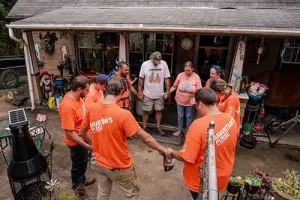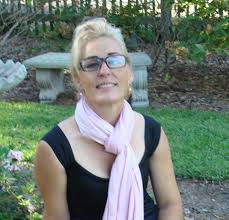“Cualquier persona puede donar” – Nicole Rankin está registrada como donante de órganos y cree en la importancia de la donación de órganos por su poder de salvar vidas.
NOTE FROM THE EDITOR: Conexión acknowledges the work of Nicole Rankin, a Florida State University student, for her outreach campaign to Hispanics so they can consider becoming organ donors. We are publishing an interview with Nicole, conducted by Graysen Martinez, on behalf of the Center for Hispanic Marketing Communication at FSU. The interview was published in the Hispanic Marketing Center’s Newsletter on April 16, 2015.
Outreach to Hispanics – Impact of a Campaign Supporting Hispanic Organ Donation
 The decision to become an organ donor affords someone the opportunity to save lives. Every ten minutes, a new patient is added to a donation waiting list. While over 120 million people in the US are signed up to be donors, Hispanics have shown a reluctance to do so, and they are actually the group least likely to donate.
The decision to become an organ donor affords someone the opportunity to save lives. Every ten minutes, a new patient is added to a donation waiting list. While over 120 million people in the US are signed up to be donors, Hispanics have shown a reluctance to do so, and they are actually the group least likely to donate.
Nicole Rankin, a Florida State University student, aims to create awareness for this need with a Public Service Announcement which she hopes will reach those more hesitant to donate because of certain beliefs and stigmas regarding donation. This PSA will be entered in the Take Flight PR Campaign contest for a cash prize and paid trip to New York City. The winner’s three minute campaign video will also be shown to 200 PR industry executives. She gives us the run-down on her work so far and the importance of fighting against the falsehoods and fears surrounding organ donation.
Within the Hispanic community, who specifically is this message meant for?
We’re targeting two audiences, actually, not just Hispanics. This message is also meant for elderly people. Hispanics, on the one hand, are the least likely to contribute to organ donation, and there are several reasons for that: religion, myths, and other stigmas prevent many Hispanics from donating organs. There are a lot of beliefs about donation that keep this group from contributing. Many seem to think that a person who’s donated organs can’t have an open casket funeral, [which is custom for Catholics] even though that’s not the case. The PSA’s purpose is to shed some light on these topics and these sort of mistruths. As for the elderly population, a lot of them think their organs don’t work as well and would not be good to donate but that’s also not true. Anyone can donate.
What can we expect from the PSA itself? How is the message presented?
We have a voice over at the beginning, and accompanying it we’re using photos of a woman and her many life accomplishments. She is a Hispanic woman who benefited from organ donation via an elderly man. Without him she would have never been able to achieve everything she has.
Who is working on this project with you, and what have these groups or individuals contributed to the project?
I’ve been working with a couple of people who are Public Relations majors, and they wanted to make a whole campaign out of it for the contest. They’re going to be making a Facebook page, and a video where someone goes out into the real world and asks people for their real opinions regarding organ donation. We also have someone from the Theatre school who’s going to be our actress, take photographs for the actual PSA, and do the voice over.
Is there a specific reason you decided to create this PSA or take on this issue in particular? Why is it important that this message be heard?
Well, just the fact that so many people are not okay with the idea of donating their organs, especially in Florida—that’s the main reason. It’s so bizarre to me, because one of my first thoughts when I got my driver’s license was “yes, I do want to be an organ donor.” That decision is the decision to maybe save somebody’s life. One body can save up to something like ten lives. I know so many people, and have so many friends who are Hispanic who say “that’s not my thing, I don’t want to donate.” But it makes me think, “why not?” I feel the need to prove to them that agreeing to donate does not take anything from them or their lives, they’re actually going to be saving people and helping people. It’s going to be a good thing. On top of that, if I needed an organ I’d hate to find out that there were not any available.

